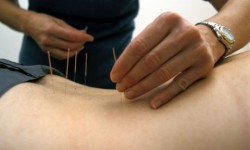Can Acupuncture Really Improve Mental Health?
According to the Better Health Channel, “Acupuncture is part of traditional Chinese medicine and consists of inserting fine needles into specific points on the skin.” The practice has been studied only somewhat, but it has been found that acupuncture “can be a safe and effective treatment for a range of disorders,” even those that affect a person’s mental health.
Which Mental Disorders Can Acupuncture Help With?
According to literature compiled and analyzed by the Quality Enhancement Research Initiative, disorders and mental illnesses such as depression, schizophrenia, anxiety, PTSD, drug addiction (and specifically opioid addiction), chronic fatigue syndrome, and alcohol dependence have all been studied in order to find the extent of acupuncture’s effect on them. This practice has been used for thousands of years to help restore balance in the mind and body and to encourage self-healing. Though acupuncture has been studied for its effectiveness on all the mental disorders above, depression, schizophrenia, anxiety, and PTSD seemed to have had the most positive results.
How Effective is Acupuncture for the Treatment of Mental Disorders?
As stated by QUERI, many of the studies that have sought to answer this question have focused on the method’s effectiveness in treating depression. While it seems that the practice may be most effective in treating this mental health disorder, this could just be because there is the most literature about it. In addition, a study from the US National Institutes of Health states, “Depression is an unfortunately common condition for which people often seek alternative (non-Western) treatments, perhaps because conventional treatments do not consistently provide lasting relief.”
One of the problems with studies that have been performed on this particular practice is the limitation of covering different types of acupuncture protocols and being able to span the vast history of the practice. Because of this, there is a lack of knowledge about whether or not the treatment itself is definitively beneficial for treating mental disorders. However, those who have found help with acupuncture swear by its ability to improve mental health.
Should I Try Acupuncture as a Mental Health Treatment?
As stated by the journal of Neuropsychiatric Disease and Treatment, acupuncture is “safe and well tolerated with only mild side effects, i.e., bruising, pain, and bleeding at the needle site.” Many people choose it for these reasons and also because it can easily fit in with other treatment options, be they Western or Eastern. Overall, acupuncture is not a harmful treatment method, and if it seems like it could be beneficial to you, you will not know how helpful it could be until you try it.
It is very important to understand that acupuncture, as a treatment option for any mental disorder or illness, should be only part of an overall treatment regimen. It is important that your doctor knows you are undergoing acupuncture and that you visit a skilled and licensed practitioner. But overall, yes, there is a possibility that this method could help improve your mental health.
Do You Want to Learn More About Acupuncture for Mental Health Treatment?
Call 888-647-0051 (Who Answers?) We can discuss the possible benefits of this option with you based on your disorder(s), your needs, and your current state of mental health.






